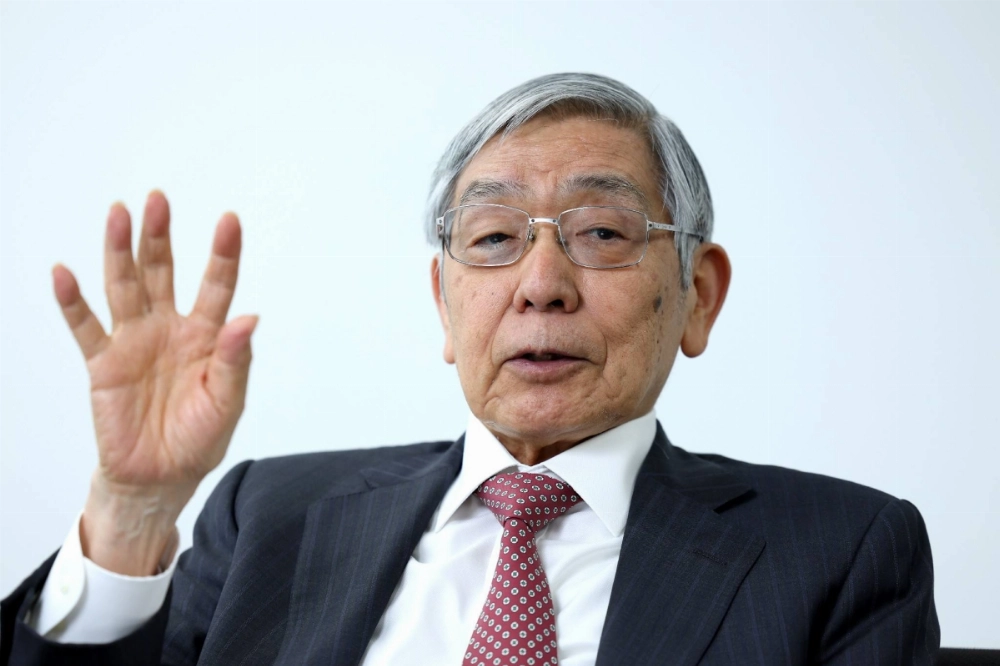The Japanese government should respond calmly to U.S. President Donald Trump's tariff measures, former Bank of Japan Gov. Haruhiko Kuroda said in a recent interview.
"It's better not to be worked up by every little thing, but to sit down and respond," Kuroda said, referring to frequent changes in U.S. tariff policy.
Kuroda criticized Trump's tariffs as "not even in the interest of the United States," arguing that they will accelerate inflation and dampen consumption.


















With your current subscription plan you can comment on stories. However, before writing your first comment, please create a display name in the Profile section of your subscriber account page.